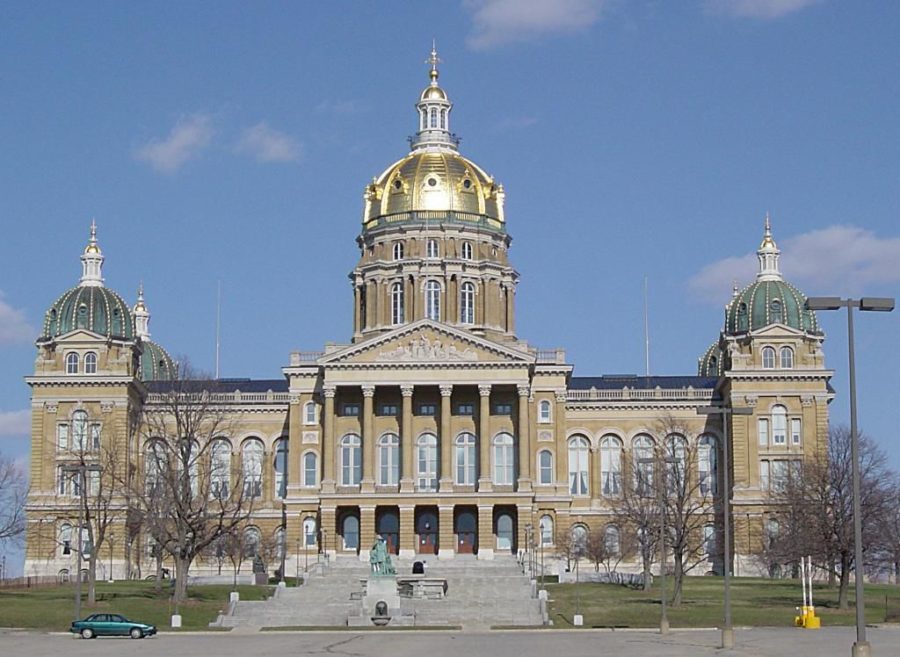Iowa Legislature’s diversity falls short of state as a whole
March 23, 2020
While ethnic minorities account for nearly 15 percent of the population of Iowa according to U.S. Census Bureau estimates, there are no people of color in the 50 member Iowa Senate and only five black representatives — three men and two women — in the 100 member Iowa House.
Rep. Ruth Ann Gaines, D-Des Moines, said black members decided to create a black caucus, as other states have similar organizations.
“Last year the four of us that were there decided to form it on our own even though we are small,” Gaines said.
The Iowa Legislative Black Caucus now has five members, following the election of Rep. Ross Wilburn, D-Ames, in August 2019.
Gaines said the Legislature looks this way because it “looks this way in the world.”
“Iowa is a white state, you can be white in Iowa and never really come in contact with a person of color to understand their point of view,” Gaines said.
In terms of impact on the Legislature, Gaines said she runs across different ideas and prejudice due to the homogeneity of the population throughout much of the state.
“Many of our legislators come from these areas like that,” Gaines said. “They bring their own biases and prejudice to the capitol and that’s what I encounter. When I first got there in 2011, I felt like I had stepped back in history.”
Rep. Beth Wessel-Kroeschell, D-Ames, said there are individuals that identify as LGBTQ, Latino American and Native American running for the Legislature in 2020.
Women account for 29.3 percent of Iowa legislators overall, with 11 in the Senate and 33 in the House, according to the National Conference of State Legislatures (NCSL). This is roughly in line with the NCSL’s data for state legislatures across the country, showing about 29 percent of state legislators nationwide in 2020 are women. This is up from 25.3 percent in 2018, though slightly more than 50 percent of Americans are women.
Wessel-Kroeschell said when it comes to all women in general, the election of President Donald Trump led to an increased number of women contenders.
“There was a lot of excitement and a lot of women upset about the election,” Wessel-Kroeschell said. “I think the election of the president motivated a lot of women to get out and work.”
Gaines said 10 years from now the Legislature will look more different than it is right now with more diverse members.
“I do see if Democrats continue to stick together, we’ll take back the [Iowa] House of Representatives next year, and so […] 2021 will move legislation that will reflect diversity,” Gaines said.
Gaines said “Minority Impact Statements” are also potentially affecting diversity through grants and future legislation.
Minority Impact Statements must currently be submitted to the State of Iowa with all grant applications. The Minority Impact Statement’s purpose is to require applicants to think about the potential impact of this grant on minority groups.
Even with continuous efforts, Gaines said it is difficult to get individuals to understand the importance of diversity.
“We have difficulty, both in our Democratic caucus and the Legislature at large, to get people to understand collectively how important it is to understand and have diversity,” Gaines said. “The lack of understanding has always been there and remains.”
Gaines started “Diversity Lunch and Learns” to foster better understanding for legislators. She said although these sessions have been making impacts for some legislators, it also speaks volumes for those who haven’t attended.
“Unfortunately Republicans have not chosen to attend,” Gaines said. “I think that alone speaks volumes about the condition of diversity in the Iowa State Legislature.”
Wessel-Kroeschell said it is important to have more diversity in the Legislature in terms of race, religion, age and other factors.
“I think it’s important for the Legislature to show the base of Iowa,” Wessel-Kroeschell said. “Those representatives bring to light the things we don’t always think about, that we should.”
Gaines said racism, homophobia and xenophobia need to be eradicated in order to make positive changes.
“Iowa can no longer be satisfied with being status quo when there are so many people around who are suffering and a lot of the suffering has to do with institutional racism,” Gaines said.







